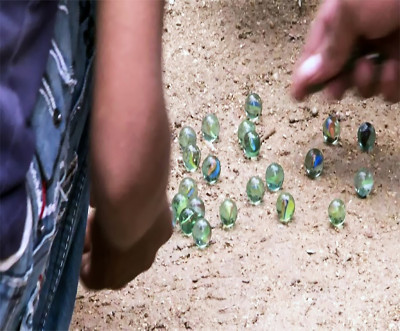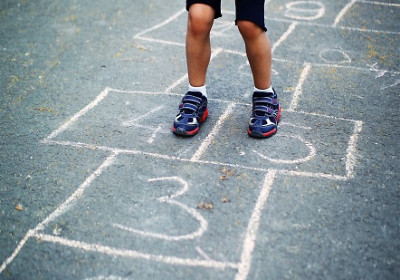Traditional Games
 Traditional games are known as simple games that entertain young boys and girls, as well as adults in families, alleys and neighborhoods of towns and villages. They occupy their time by stimulating their brain and body and develop their abilities and talents giving them more health and well-being. These games fill with joy and happiness instill in young generations kindness, rules and beautiful values.
Traditional games are known as simple games that entertain young boys and girls, as well as adults in families, alleys and neighborhoods of towns and villages. They occupy their time by stimulating their brain and body and develop their abilities and talents giving them more health and well-being. These games fill with joy and happiness instill in young generations kindness, rules and beautiful values.
 Popular games are considered a cultural aspect of society, characterized by freedom of practice, governed by rules and a continuity of creativity and innovation. They are similar in different regions of Lebanon. They use local environmental materials in their manufacture and are accompanied by songs and other local expressions for children.
Popular games are considered a cultural aspect of society, characterized by freedom of practice, governed by rules and a continuity of creativity and innovation. They are similar in different regions of Lebanon. They use local environmental materials in their manufacture and are accompanied by songs and other local expressions for children.
They also have pedagogical, educational and psychological dimensions, as well as behavioral, cognitive and emotional support, and were developed according to the abilities and ambitions of the players. They are also characterized by their specialization, because there were games for boys, others for girls as well as games for children and others for adults.
There are games that the children play during the day and others in the evening or during the summer or winter. Boys’ games differ from girls’ games. Sometimes girls play boys’ games, such as the game of seven stones, while boys play girls’ games, such as jumping rope and hopscotch. All these games are accompanied by shouting and a lot of movement. They allow the discharge of children’s energy.
Games differ from each other in form, content and method of execution. They are an important part of the world and social education of children. The most famous games are: al-laqitah, daq al-habi, al-mankerah, al-sabeh ahjar (seven stones), the marble game, the idol, laqut, military and thieves, oh Jammal, taq taq taqiyya, kirchak ‘ali, oh my uncle, where is the road? or al-dib al-‘a’mah (the blind bear), Tamma, ghamidah (hide and seek), jumping rope, shad al-habel, al-hajleh (partridge), jammal machi (walking Camel), ya Salwa leich ‘am tebki (Oh Salwa, why Are You Crying?), sabehqon bil kheir, tabet al-sayyad (dodgeball), al-tankeh…
For a long time, new generation was no longer interested in passing on games and there was a severe shortage of people who can transmit the rules of the game. The actual deteriorating economic situation, children returned to playing traditional games in some neighborhoods especially in popular areas. It was an excellent opportunity to transmit and reactivate these games.
In Tripoli, known as the poorest city aound the Mediterranean Sea, Cross Arts Association monitors the places where games are played and encourages the children to create teams and clubs in some poor areas. It also integrates these games into its activities and those of other NGOs organizing groups to visit the city (domestic tourism…).

